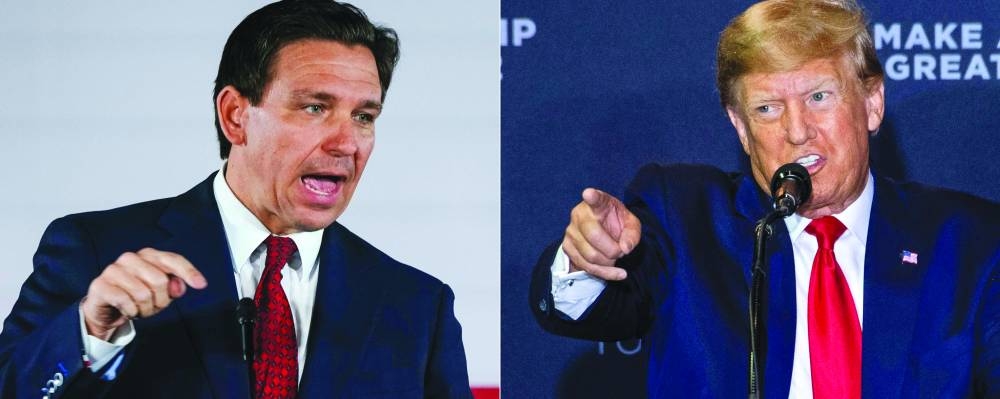If Ron DeSantis hopes to defeat Donald Trump and win the 2024 Republican presidential nomination, he will ultimately have to bring every possible anti-Trump voter he can into the fold. But even that likely will not be enough, political analysts say.
DeSantis will also have to pull some supporters away from Trump — and that could make for a tricky balancing act that DeSantis is already struggling with.
“You can’t court MAGA while courting the rest of the party,” said Chris Stirewalt, a Republican analyst with the American Enterprise Institute, referring to Trump’s diehard supporters in his Make America Great Again movement. “That’s a difficult decision he is going to have to make.”
The Florida governor plans to announce his presidential bid on Wednesday after months of speculation. With deep financial resources and a growing national profile, DeSantis will quickly become Trump’s top rival in the race.
But he will have much work to do: Reuters/Ipsos polling conducted this month showed Trump backed by 49% of Republicans and DeSantis 19%.
DeSantis’ initial challenge is that the anti-Trump field is fractured. Nikki Haley, Trump’s former ambassador to the United Nations, and Tim Scott, a US senator from South Carolina, among others, are already in the race, with more candidates such as Trump’s former vice-president, Mike Pence, perhaps to follow.
DeSantis’ campaign will have to figure out how to appeal to mainstream Republicans turned off by Trump while also finding ways to attract conservative voters who may be unsure about supporting Trump in 2024 even if they have backed him before.
“He can’t win the nomination with only non-Trump votes,” said Sarah Isgur, a veteran of several Republican presidential campaigns. “He has to peel voters away from Trump.”
A longtime Republican pollster, Whit Ayres, argues that the Republican electorate is divided into three segments, with Trump die-hards comprising about 30-35% of the party, anti-Trump voters making up about 10% and the rest somewhere in between – what he calls “maybe-Trumpers.”
“It looks to me like DeSantis is going after the always-Trumpers rather than the maybe-Trumpers,” Ayres said.
That’s a waste of time, Ayres said. Instead, DeSantis’ mission should be to convince “voters looking for an alternative to Trump that he’s the right guy.”
Stirewalt agrees, saying DeSantis needs to first build a strong base within the segment of the party not aligned with Trump before he can try to broaden his appeal.
“He needs a launchpad,” Stirewalt said.
DeSantis appears, however, to have chosen to court the party’s most conservative voters — and those most likely to stay with Trump — to the dismay of some potential donors and supporters.
As governor, he made it easier for residents to carry concealed weapons. He suggested supporting Ukraine was not in the national interest before backtracking under a fire storm of criticism.
And his continued blood feud with Walt Disney Co., one of the largest employers in Florida, has baffled some traditional Republicans who prefer a hands-off approach to corporate governance.
DeSantis’ political team did not respond to a request for comment.
In a telephone call with donors last week, DeSantis said Trump would not be able to beat Democratic President Joe Biden and that he was the only one capable of winning both the Republican primary and the general election, according to the New York Times, which listened to the call. — Reuters

This combination of pictures shows Ron DeSantis (left) and Donald Trump. (AFP)
